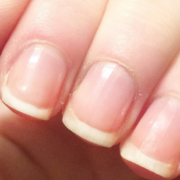You can call me honey—if you’re my husband. What is this about? I recently shared an article from Next Avenue on the harm it does to older persons when they are called honey or sweetie. These terms contribute to ageism according to the article. Boy did I get some pushback on my stance of avoiding those words! My readers contributed great insight on the topic, but many feel it is Southern custom, and that I should just lighten up 😉

I, however, agree with the article (reference bottom of this post if you want to read it) and recommend refraining from using these ways of addressing individuals, not just senior adults. There are many reasons why this occurs in our society, and with language, context is everything. Words matter.
Sweetie Or Honey In Context-It’s Not Only Ageism
Let’s look at some of the reasons why people use these terms of endearment.
- They may be witnessing someone in pain, who is experiencing grief or loss, and intend the appellation as comforting, one that expresses sympathy or empathy. They may want to offer their compassion without trying to solve someone else’s problem—a good idea indeed.
- It may be more culturally acceptable in your location, as it is in the South. I mean there’s a reason “Bless Your Heart” is popular (tip ‘o the hat to Celia Rivenbark). Who hasn’t had wait staff somewhere call you by these terms?
- Perhaps you are intending to clarify and soften scary (again, it is tough to watch others in pain) information with helpful explanations on behalf of someone else, such as when you attend a doctor’s appointment with a senior family member. You might say, Sweetie, I think what the doctor means is….
- And sometimes the doctor or nurse will begin addressing the patient this way, and then turn their attention to whomever is accompanying the person, as if they are not in the same room. By the way, this happens to children as well when we don’t respect their presence while discussing issues that affect them.
Now I’d like to request that you consider some alternative explanations on why these ageism stereotypes are so often employed.
The Real Reasons We Use Sweetie And Honey
- When we witness someone we care about in pain, it is hard. Especially when the person is a family member or child. We want to comfort them, and that is 100% natural, but we are also comforting ourselves in the process, because, as I said, it’s hard to watch suffering.
- When waitstaff refers to you as sweetie or honey, it may simply be habit, because they don’t know your name, and want to appear caring and attentive. After all, they survive on tips, which I hope you are generous with. But “ma’am” or “sir” would do the trick. Yes, yes I know you’re thinking “Lighten up; it’s the South; it’s what we do here.” Suit yourself.
- When a senior individual is in a vulnerable position, such as at a doctor’s appointment, and they are the recipient of the terms “sweetie” or “honey”, it is never intended as dismissive. However, it is. It diminishes the person’s intelligence, knowledge, and the ability to make their own decisions. And it places the provider in a power-over position that is slightly contemptuous and means simply by their age, the person has been rendered incompetent. It could be you next.
- There is also a more insidious use. That is to put oneself in a one up position by condescending in a veiled manner. It is hard to call out. It is akin to gas lighting. You know it feels wrong, but you can’t quite put your finger on it without sounding nit-picky. If you do, the offending party has an easy way to backpedal and put the blame on you.
But Here’s The Thing With Ageism.
People often will not say a single word about it because they sense it will make them come off as “prickly”, or over sensitive when others are trying to “help” them, or they simply do not have the will to come across as confrontative. Women have been trained from birth not too appear too strident. It’s just not “nice.” In addition, they may not have the words to adequately express this feeling when they have been caught off guard. Have you ever found yourself at a loss for words when you feel embarrassed? And it may be generational, but women may especially feel diminished, and not quite understand why they feel this way.
My take on this is to use a person’s name. Otherwise you risk demeaning the person’s intelligence and capability. Include them in discussions fully without assuming they do not understand, or cannot speak for themselves.
Sometimes Rules don’t Apply
There are situations where this is not applicable. I’m not suggesting we abandon either kindness or common sense, but that we increase our awareness of how stereotypes like this may affect others. I’ve heard the old saw that there are so many more important issues to discuss in the world. I dismiss this as faulty reasoning to continue the practice. Just because heart disease and cancer are the number one and two killers doesn’t mean we should discontinue the search to cure MS or avoid getting a flu shot.
Habits are tough to change, but in the interest of the greater good, and NOT contributing to ageism, I ask you to consider your intent carefully before you address someone as “sweetie” or “honey” or mention that someone is “85 years young.” Hmmmm…I think my boxing gloves are in the back seat.
If you are having trouble sorting out your own challenges, call me for a free 20 minute phone consult, or shoot me an email. Together we can figure this out, and you can learn to trust yourself in ways that will set you free to have the best possible relationships with family, friends and lovers.
You can find the original post that started this discussion at Next Avenue.
Page Rutledge, LCSW, MSW, MPH is a Licensed Clinical Social Worker practicing in Wilmington, NC. She specializes in anxiety management and couples communication. Visit her website and blog at www.pagerutledge.com










